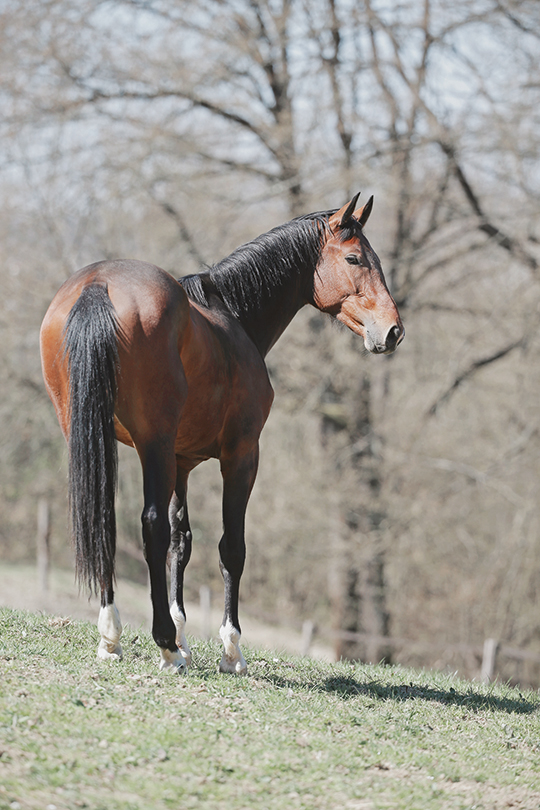If one understands that for each stride at a canter a horse takes a breath, then one can instantly grasp the fact that the work done by its lungs and related organs is always very intense.
When making an effort, such as jumping a round, over 1,500 litres of air per minute go through a horse’s lungs. This breathing capacity allows athletic horses to consume over twice the amount of oxygen than a man. The more this oxygen consumption mechanism is efficient, the more its sporting performance is optimal. The mechanism’s efficiency depends not only on the horse’s genetic capabilities, but on training, management and nutrition, which can make all the difference to the health of the respiratory system.
The respiratory system is therefore subject to a significant effort when exercising and that is why it must be kept healthy. Respiratory functionality depends on various factors, among them training and environmental management. An unsuitable environment in which the horse holds its nose up in the air breathing in greatly polluted air is a serious problem for the respiratory system. It is no coincidence that respiratory problems are among the most common in athlete horses. For horses the air available in stables is often that of its bedding.
Horses in fact spend most of their time in search of food, eating their fodder and looking for the last stems of hay in their bedding.

What can be done to improve respiratory health?
To keep the respiratory system healthy and efficient it is necessary to plan:
01. Suitable training: gradual and well- planned fitness training is essential for getting a horse fit and able to exercise with a good reserve of staying power.
02. Meticulous management: the environment in the stables must envisage an airy situation with good clean air circulation free of dust. We must bear in mind that air quality in stables is affected by: — The hygiene of bedding: bedding contains irritant gasses due to the ammonia resulting from urine degradation. Ammonia is a very powerful irritant of the horse’s airways. — Dusts and mould, naturally present in bedding, in fodder and the environment. — Endotoxins (LDS): present in the environment following the normal presence of bacteria. The dirtier the bedding the more they will be present. — Bio-aerosol: these are particles of biological origin that are suspended in the air such as for example toxins, microorganisms and bacteria, fungi and pollen that one sees floating in the air when a ray of llight irradiates the environment.
03. Nutrition: fodder is often blamed for respiratory problems if it is not of good quality due to the presence of dust or mould. There are batches of hay in which mould is not evident with its classic change to a grey-black colour, but is in any case contaminated by a high level of different kinds of mould, dust or bacterial endotoxins. This is why choosing good hay is essential. Hay must be fragrant (healthy fodder has a fragrant smell) and have a brilliant colour.
One must avoid loads of hay that, when opened, are dusty, are of a ‘cooked’ brown colour and smell rather fruity or remind one of tobacco. When there are sensitive horses present it become essential to treat fodder using expedients such as vaporisation although in some cases it is sufficient to wet the hay or use silo hay.
Additional help
In addition to healthy hay, sports horses can benefit from particular supplements. Given the quantities of oxygen passing through the respiratory system, supplementation with antioxidants is certainly important. Vitamin E is an essential nutrient often lacking in the diets of stabled horses. While it is found naturally in pasture grass, it is in short supply in dried fodder such as hay.
Omega 3 too are extremely beneficial thanks to their anti-inflammatory effects. Furthermore, there are numerous supplements containing herbs that can help respiratory activity. The use of plants or parts of plants such as roots, seeds or flowers has always been promoted for the well-being of the body. Mixtures of herbal extracts that are essential for maintaining health and assisting physiological functions such as respiration. Although there are recipes handed down through the ages, it is best to only use complementary feeds or supplements formulated for horses. This way we can be sure that they are doping-free and safe for our horses.
